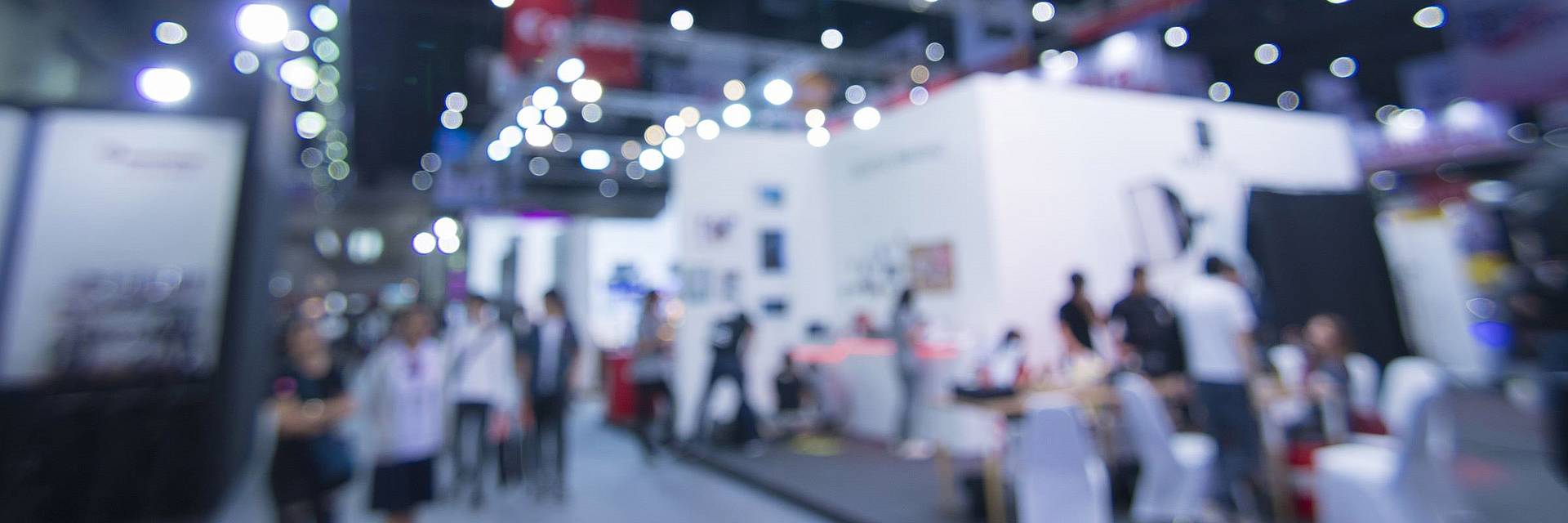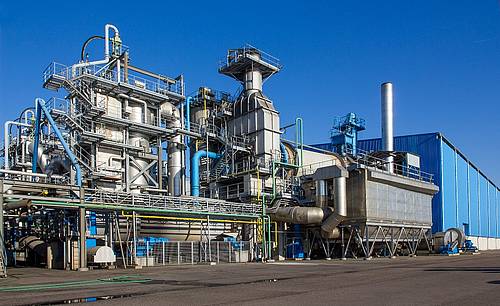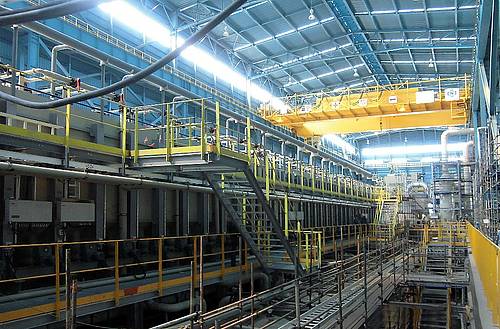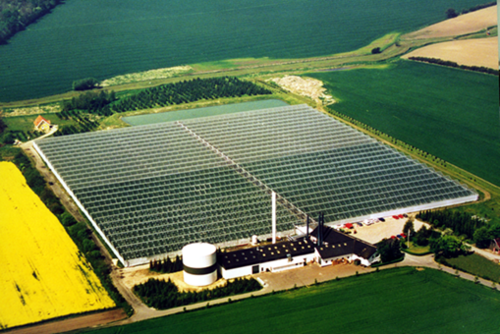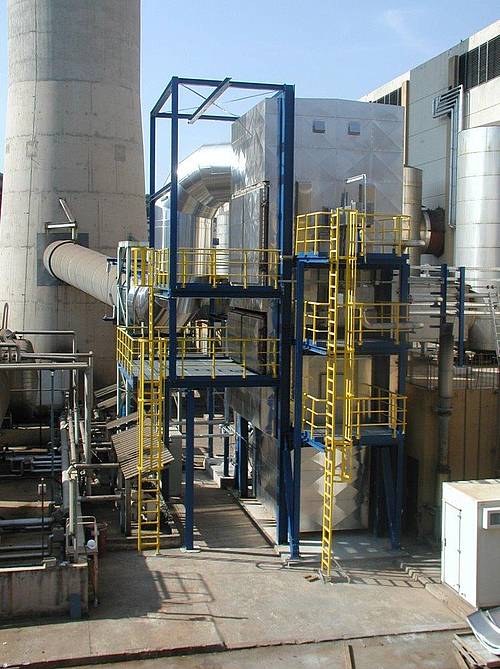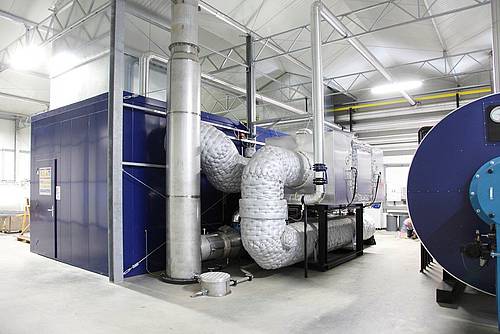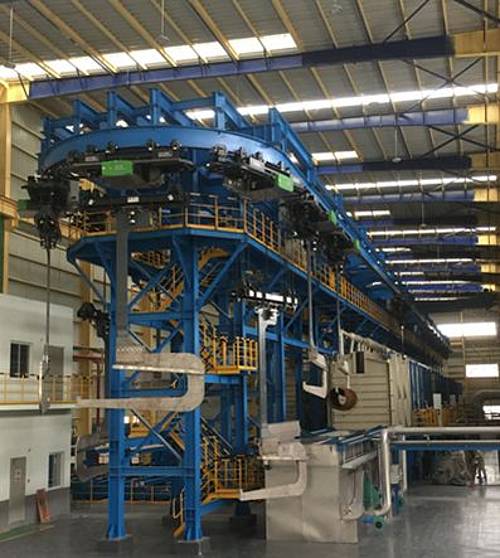The medium-sized traditional company Steuler is a global specialist for acid and fire-proof linings. Its success in the market boosted interest from the market for complete process plants for the surface treatment equipment field. The apparatus construction division evolved from the 'Acid-proof installation' division in 1964.
Mature procedures, processes and systems for mechanical and chemical surface treatment of steel, stainless steel, glass and special materials, taking into consideration the respective ecological and economic requirements, has been the domain of the this plant construction company from the Westerwald region in Germany right from the beginning.
Based on the treatment of exhaust gases, concentrates and wastewater that are an inevitable environmentally-relevant by-product of the chemical surface treatment stage, this company developed procedures and systems to treat these waste products as early as the end of the 1970s.
Right from the start, the focus was on recycling pollutants into raw materials or releasing their natural constituents into the ambient air rather than shifting the exhaust air and wastewater problems to open waters and dumps. The procedures and systems developed here are not only used for surface treatment, but also in the energy, waste, metal and raw material treatment sectors, as well as in the chemicals and petrochemicals industries.
The need arose once visible environmental pollution in West Europe led to the drastic reduction of the permitted limit values for the discharged exhaust air and wastewater flows, and the requirements for depositing residual materials on dumps were tightened accordingly. This was and still is costly, which inevitably led to the development of procedures and systems that took into account both environmental considerations as well as operating and investment costs. Today, Steuler Anlagenbau has a product portfolio that takes all these requirements into account.
In 1980 the first wastewater-free desulphurization plant that used lime as an absorption agent to reduce SOx, HCl and HF emissions went into operation. Thanks to consistent development and progress, wastewater free methods were developed and also all residual materials created, including gypsum in this process, were disposed of as a raw material in the cement and construction materials industry.
1982 saw the introduction of SCR catalysts and systems for removing NOx emissions by discharging the natural constituents into the ambient air (nitrogen and water).
A regeneration plant for recycling acids, metals and water from old acid and rinsing water - based on mechanical, chemical and thermal procedures - was developed in 1987. The acids and water in the solutions were recovered and returned directly to the upstream processes. The metal that has been cut off is integrated back into the steel production process as a raw material in the shape of metal oxide.
1997 marked the next development: Highly effective, catalytic exhaust gas cleaning systems for using cleaned flue gases from combustion engines for atmospheric CO2 fertilization in greenhouses (ECO2PRO) - economic use of the waste product CO2 as a raw material. Power-heat fertilizer coupling – the overall exploitation factor is more than '100%'.
Two years later engineers at Steuler came up with a procedure for pickling stainless steel using hydrochloric acid instead of conventional mixed acid (HNO3/HF). The benefit: No NOx is created and there is zero discharge of 'fertilizer' nitrate combined with improved surface quality and much lower operating costs.
The acid regeneration procedure was developed to recover HNO3, HF and metals from spent mixed acid, and was installed for the first time in a stainless steel band pickling system in Taiwan in 2000 where it is still in operation today.
At the same time, Steuler Anlagenbau also supplied flue gas desulphurization systems to power plants in Turkey in which concrete scrubbers were installed with a mechanically anchored, thermoplastic lining that protects against corrosion.
In 2012 the first developed wastewater-free pickling systems for stainless steel wire were shipped to China. Environmental authorities now specify the process and system equipment used there as an environmental and safety standard for these kinds of applications.
The first wastewater-free wire pickling system was supplied to India in 2013, and a second system was shipped to China in 2015. Both systems operate along the ZLD principle (ZLD = Zero-Liquid-Discharge), based on chemical, mechanical and thernal procedural steps. Here, the water contained in the wastewater and spent acid is recovered as fresh water and returned to the pickling process for reuse. A cycle is created without pollution.
In 2014, Steuler Anlagenbau added the dry, wastewater-free, thermal and mechanical flue gas treatment process to its portfolio as a full-range supplier for environmental technology.
The spirit of the founder Georg Steuler is still felt in the plant designs: recognise opportunities, solve problems, promote new development – progress is a tradition at Steuler.

